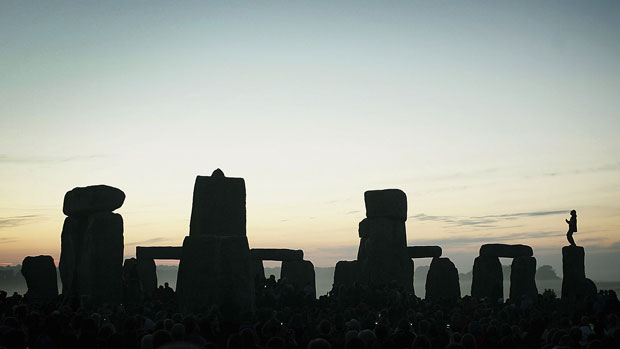Hog roasts a favourite for Stonehenge locals in 25th century BC
Site near Stonehenge continues to throw light on ancient Britons' daily lives, including culinary habits

A free daily email with the biggest news stories of the day – and the best features from TheWeek.com
You are now subscribed
Your newsletter sign-up was successful
Hog roasts and cheese were among the favourite dishes eaten by a community living close to Stonehenge during the 25th century BC, according to a recent study published by the University of York.
Researchers found compelling evidence on ancient Britons' culinary habits by analysing the archaeological site at Durrington Walls, a late Neolithic monument in Wiltshire.
DNA evidence found on the remains of pottery pointed to mass-consumption of whole-roasted pigs and cows, while dairy products such as cheeses, yoghurts and milk, found in lesser quantities, seem to have been reserved for the elite or ceremonial use.
The Week
Escape your echo chamber. Get the facts behind the news, plus analysis from multiple perspectives.

Sign up for The Week's Free Newsletters
From our morning news briefing to a weekly Good News Newsletter, get the best of The Week delivered directly to your inbox.
From our morning news briefing to a weekly Good News Newsletter, get the best of The Week delivered directly to your inbox.
Durrington Walls was recently uncovered as the largest preserved stone monument in Britain, thought to have been built 4,500 years ago.
According to the study, it was most probably used as a settlement for workers who built Stonehenge. However, unlike Stonehenge, which was primarily a burial place, Durrington Walls was the site of a lively community, which explains why archaeologists have been able to find more than 11,000 fragments of food-related items such as animal bones and pottery.
Professor Mike Parker Pearson, of University College London and director of the Feeding Stonehenge project, said: "This new research has given us a fantastic insight into the organisation of large-scale feasting among the people who built Stonehenge. Animals were brought from all over Britain to be barbecued and cooked in open-air mass gatherings."
The study shines a light on working patterns as well. With cattle brought in from across Britain and extensive feasting patterns, the study concludes that this was a slave-free community, with volunteers making up the bulk of the population.
A free daily email with the biggest news stories of the day – and the best features from TheWeek.com
Dr Oliver Craig, reader in archaeological science at the University of York and lead author on the paper, also points out that evidence of food-sharing at Durrington Walls shows a "greater degree of culinary organisation than was expected for this period of British prehistory". He adds: "The inhabitants and many visitors to this site possessed a shared understanding of how foods should be prepared, consumed and disposed."